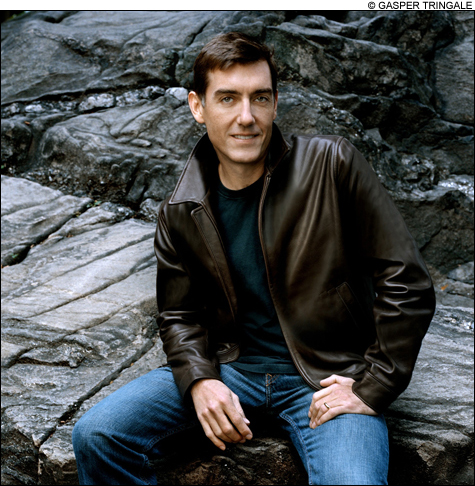
JUSTIN CRONIN A native New Englander, he now lives in Houston.
|
It might require you to buy a bigger beach tote, but there's no doubt that summer's must-read is Justin Cronin's The Passage, a hulking 766-page epic that traces the genesis and fallout of apocalyptic viral vampirism.The Passage by Justin Cronin | Ballantine Books | $26 | Cronin will read at RiverRun Bookstore, 20 Congress St, Portsmouth NH | June 21 @ 7 pm | 603.431.2100 | riverrunbookstore.com |
I can hear your groans from here. I rolled my eyes too, a bit. After all, between
Twilight,
True Blood, and the desperate mimicry they've inspired, how much more blood-sucking can we take? Seven hundred and sixty-six pages more, it appears — not to mention the next two books (
The Passage is the first of a trilogy, see). Cronin, who says his vampire influences run more Bela Lugosi than Bella Swan (he hasn't even read the
Twilight series, omg), wrote two books before this one; both of them were decidedly more "literary." By which I mean, they didn't have dedicated Web sites and giant marketing campaigns and banners the size of buses at Book Expo America and pre-publication million-dollar movie deals with Ridley Scott. (Cronin's 2004 book,
The Summer Guest, took place in Maine.)
But the joy of The Passage is that it bucks both of these possibilities for preconception and pigeon-holing. First of all, it is not a traditional vampire story. And second, while it certainly veers into "genre" territory (here my eyes roll even farther back into my head), Cronin's characters and narrative turns-of-phrase don't feel like paranormal pulp (not that there's a damn thing wrong with paranormal pulp).
Here's the basic gist of Cronin's tale: A government experiment gone awry leads to an epidemic of vampirism — the creation of 12 "virals" (Cronin does not call them vampires) who tear humans apart and multiply too quickly to be contained. Before long, there are tens of millions of "Infected Persons" roaming the country. The speed and severity of the destruction is breathtaking.
There is a 13th original viral, a girl named Amy. She is not like the others. She is the girl who could save the world. (A behind-the-scenes narrative that is as compelling as what shows up on the page: this girl-who-saved-the-world stuff came as a mandate from Cronin's daughter, who worried that her father's books were "boring."
We follow her into the Northwest mountains. Then we fast-forward farther into the future, to Southern California, where a new colony has survived. They watch for virals (also called "flyers," or "smokes") from a tall wall, and keep the lights on through the night to keep the enemy away. Here, we find a new cast of characters into which Amy is eventually introduced.
Cronin has said that "in some ways, shaking off my strictly Northeastern point of view has been the central project of my adult life." The Passage somehow informs that goal — not only does the setting change frequently, but there is a clear effort to recreate a sense of vastness, of emptiness, of looking toward the horizon and not knowing what you see. Those are sensations associated with the West, not with New England (Cronin grew up in Massachusetts).